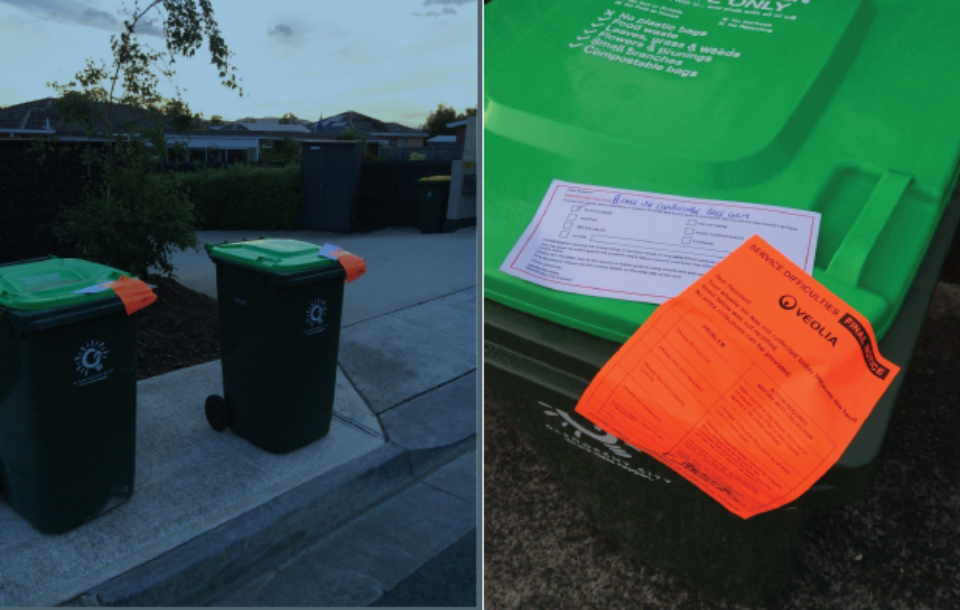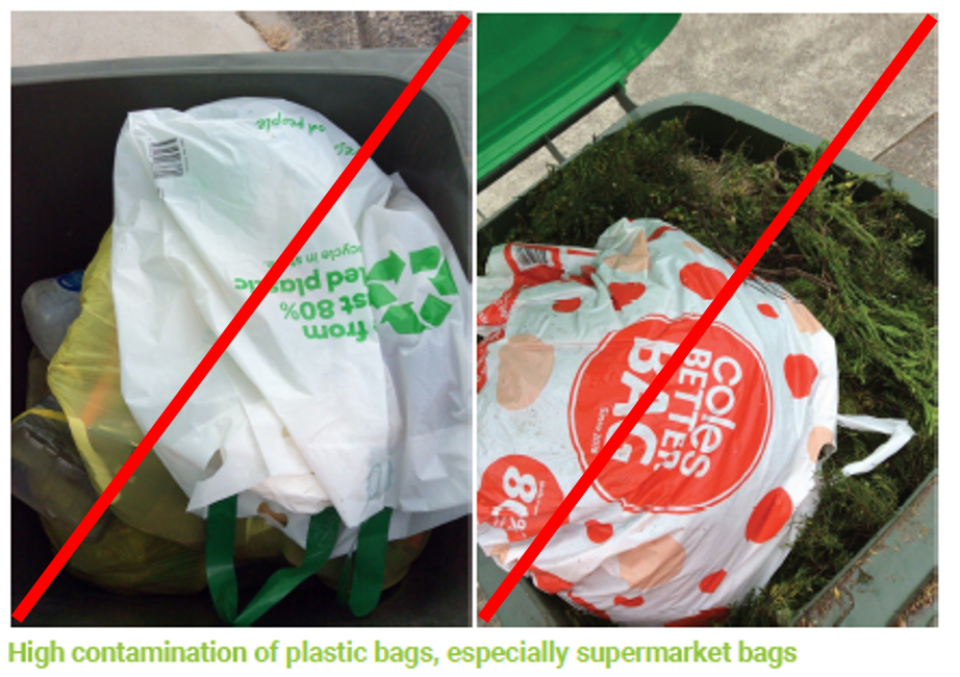
Glenorchy City Council’s role is to manage household waste in the most sustainable and cost-effective way. While most people think only about their own waste, Council has to think about it collectively – the total volume produced by 46,000+ residents every single day. This adds up to 100s of tonnes a week.
And contamination - putting the wrong thing in the wrong bin - costs us all.
Not only is there a contractor cost for identifying and removing contamination, it also costs money to send it back to landfill.
To help reduce contamination costs, most Councils around Australia do audits on their kerbside wheelie bins. These audits teach waste staff exactly what types of items residents make mistakes with, and where more education will be helpful.
Wheelie Bin Audits are not about catching people out, it’s about helping people out.
Council’s last audit was run by Veolia, who have truck cameras to take photos and videos of contamination, plus can examine bin contents on our behalf*.
SO HOW DID WE DO?
From random audits on 6,729 recycling and FOGO bins, Veolia found plastic bags are still the biggest problem.
WHAT’S IN OUR BINS?
In recycling bins, Veolia’s audit showed people made mistakes with:
- plastic bags 53.2%
- general rubbish/other 29.9%
- polystyrene 7.2%
- food, garden waste 5.3%
- nappies 2.4% and clothing 1.9%
In FOGO BINS, Veolia’s audit highlighted problems with:
- plastic bags 51.5%
- general rubbish/other 32.8%
- recyclables 13.3%
- nappies 1.7%
- polystyrene and clothing at <1% each
Weird (non-recyclable) items included a guitar, toys, and someone’s bathroom renovation!
Contamination is such an unnecessary cost to ratepayers - it's a triple whammy.
Rates money is used to pay our contractor Veolia to empty FOGO and Recycling bins. Every single Veolia truck is examined for contamination, and if there’s too much contamination (e.g. recycling in plastic rubbish bags) then there’s a penalty fee, and the whole truckload gets rejected. And, as with all wheelie bin contamination, rates money then has to pay to get it trucked back and buried in landfill.
Council runs continuous education campaigns to help people sort their waste correctly, this includes signs, leaflets, letterbox mailings, an annual Waste Services Guide and collection calendar, advertisements, regular updates on this waste website and Facebook page, plus fact sheets, a free smartphone App and workshops, presentations and landfill tours for our schools and community groups. Read more about our Education and Waste Reduction campaigns.
Until next audit, Council will also be using the information above to help people do the right thing.
We ask that our ratepayers also do the right thing, be a good sort, and use the right bin.
Got a question about kerbside bins? Please contact us on 6216 6800, or gccmail@gcc.tas.gov.au. If you spot illegal dumping or littering, contact the EPA on 1300 135 516 or go to their website https://rubbish.epa.tas.gov.au.
* Environmental By-Law 2017 25 (6) sets standards for appropriate management of Council assets (wheelie bins belong to Council).
